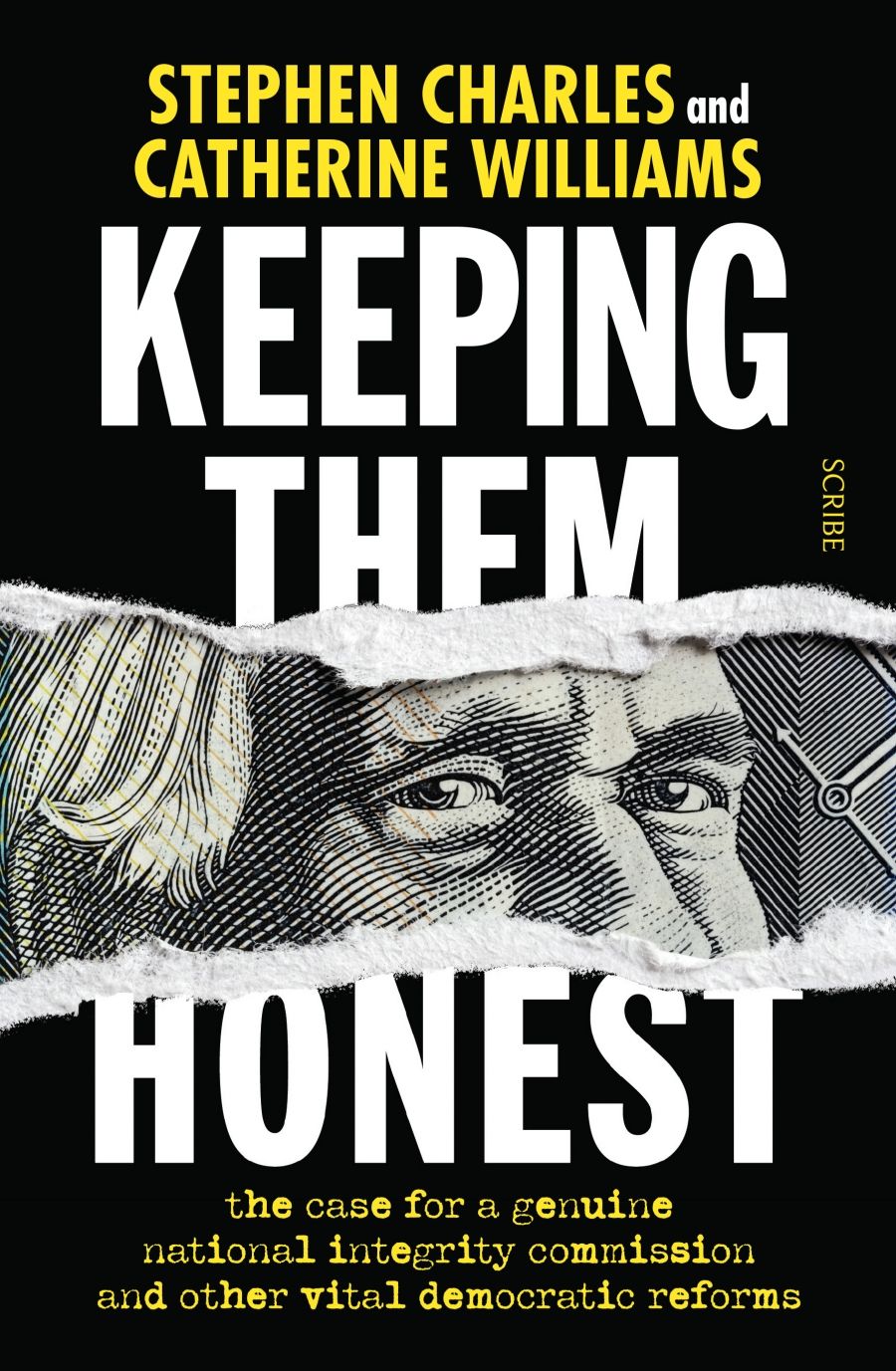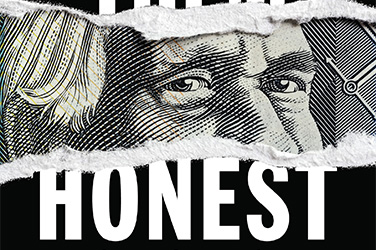
- Free Article: No
- Contents Category: Politics
- Review Article: Yes
- Article Title: ‘Corruption has flourished’
- Article Subtitle: The need to make political integrity a priority
- Online Only: No
- Custom Highlight Text:
One of the most important pieces of public interest journalism in recent times, and one with direct relevance to Australia, was written from a prison camp east of Moscow in 2021 by Russia’s de facto opposition leader, Alexei Navalny, incarcerated by the Putin government after its failed assassination attempt on him (Guardian, 20 August 2021). During his imprisonment, Navalny had identified a pattern in the memoirs of world leaders. Integrity was never mentioned in their accounts of ‘big agenda’ policy successes, only failures. The argument that pervasive corruption in the government of Afghanistan explained the failure of Western intervention there is one example. Navalny said the pattern invited an obvious question.
- Featured Image (400px * 250px):

- Alt Tag (Featured Image): Chris Wallace reviews 'Keeping Them Honest: The case for a genuine national integrity commission and other vital democratic reforms' by Stephen Charles and Catherine Williams
- Book 1 Title: Keeping Them Honest
- Book 1 Subtitle: The case for a genuine national integrity commission and other vital democratic reforms
- Book 1 Biblio: Scribe, $32.99 pb, 271 pp
- Book 1 Readings Link: booktopia.kh4ffx.net/MXVXE3
For the first time in our history, the federal government’s integrity is under a comprehensive cloud. There have been isolated concerns at the national level before but not, until the Morrison government, the systemic whiffiness of notorious state governments like those of Liberal Bob Askin in NSW (1965–75), the Country Party’s Joh Bjelke-Petersen in Queensland (1968–87), or Labor’s Brian Burke in Western Australia (1983–88).
A valiant band of Australians is working to make integrity a priority on Australia’s policy agenda in the way Navalny advocates. Among them lawyers loom large, especially those who are part of the independent Centre for Public Integrity think tank. Its chair, former Victorian Supreme Court Judge Stephen Charles QC, and research director, Dr Catherine Williams, have written a guide to help extricate us from the creeping corruption hellhole into which Australia is sliding: Keeping Them Honest.
 Catherine Williams and Stephen Charles (Scribe)
Catherine Williams and Stephen Charles (Scribe)
‘This is a disturbing book,’ writes Gerard Brennan in the foreword. ‘It is meant to be.’ There is no brooking of argument about whether a decline in the integrity of Australian public and political life has occurred or not. ‘Corruption has flourished,’ Brennan declares. This is a former chief justice of the High Court, not a politician. Brennan isn’t ringing an alarm bell – he is leaning hard on a Klaxon horn to get immediate attention and action. Charles and Williams’s Keeping Them Honest is a vital resource at a critical moment in Australia’s national life.
There is agreement across politics that a federal integrity commission is needed, but disagreement about its design. The Morrison government promised one and its attorney-general, Christian Porter – who later left the ministry and, at the 2022 election, politics altogether under an integrity cloud – drafted a bill for one which, Keeping Them Honest shows in detail, would actually protect politicians from scrutiny. In contrast, Labor and crossbench MPs want a federal integrity commission with teeth, that will put politicians under scrutiny.
Mark Dreyfus QC, Labor shadow attorney-general, has drafted a set of principles for a commission with teeth. Independent MP Helen Haines has a similar draft bill. Liberal backbencher Bridget Archer crossed the floor of parliament, along with Labor and crossbench MPs, to support Haines’s attempt to have her bill debated, thus signalling that not all Coalition politicians accept the political misconduct practised by the Morrison government. Integrity is a big issue in Coalition-held seats like Kooyong and Goldstein in Melbourne, and Wentworth in Sydney, all under siege from independent political insurgencies.
In the first part of Keeping Them Honest, Charles traces the steady if uneven development of state integrity commissions and recounts some of the disturbing number of corruption cases they have revealed. He highlights the conspicuous absence of an official anti-corruption body at the federal level and lays out a long list of recent cases where one should have been active had it existed. Examples include allegations of systemic fraud in the Defence Department; a report that the French company DCNS, from which Australia contracted to buy twelve submarines, had paid large bribes to other countries to secure sales; the government’s purchase of land at Leppington for Western Sydney Airport, valued at $3 million but purchased for $30 million; questions about massive and highly questionable contracts relating to offshore detention facilities; and the government’s ‘robodebt’ scheme, which operated even though the government knew it to be unlawful.
Charles sets out the basic principles which should underlie such a body. It should be independent; have the full powers of a Royal Commission; have a broad jurisdiction; be able to hold public inquiries; have power to make findings of fact and of corrupt conduct (but not criminal offence); and be able to refer findings concerning potential criminal offences to the Director of Public Prosecutions.
Importantly, Charles shows that public hearings are a normal part of our civil life. The courts operate that way. Royal Commissions, including those established by federal Coalition governments over the past decade, operate that way. Existing state integrity commissions do the same.
Readers of Keeping Them Honest can join the dots and work out for themselves that fears whipped up by the Morrison government to justify its toothless model – that entities such as the NSW Independent Commission Against Corruption (ICAC) are ‘kangaroo courts’ – are bunkum. Look no further than the three former New South Wales premiers who left politics under ICAC clouds (Nick Greiner, Barry O’Farrell, and Gladys Berejiklian) and who have suffered no reputational damage, if their current senior private and public sector positions are any indicator.
In the second half of the book, Williams addresses wider and equally important issues that require complementary action if the toxic bloom of misconduct now evident in Canberra is to be rooted out. She considers fundamental questions regarding the fairness and honesty of federal elections flowing from slack political donation disclosure rules. She notes an incredible $1.85 billion in unexplained federal political donations over the last decade, which highlights not just the danger but the probability of Australian democracy being hijacked behind voters’ backs. Williams points to the lack of any cap on federal election expenditure, leaving the way open for the Clive Palmers of the world to skew voting patterns through sheer weight of advertising expenditure. She points out that ‘truth in advertising’ legislation has existed in South Australia since 1985, and in the ACT since 2020. Why not federally?
Keeping Them Honest is a robust, practical, and concise roadmap for how to rescue Australian national politics from the murk in which the Morrison government has mired us. Labor and crossbench MPs would do well to get behind the path, principles, and policies outlined in it, as a way of taking the politics out of restoring integrity in Australian public life. This is because the Coalition would find it much harder to attack Labor and crossbench MPs united behind Charles and Williams’s proposals, and the Centre for Public Integrity’s overall approach, given the quality and unimpeachable independence of their work.


Comments powered by CComment